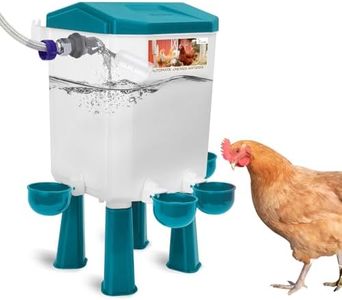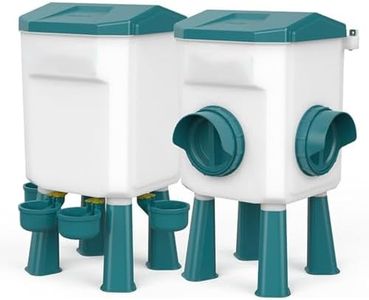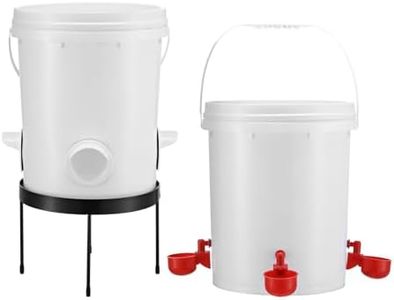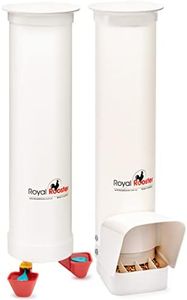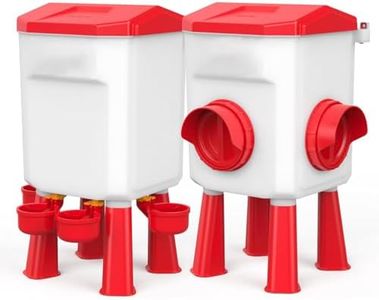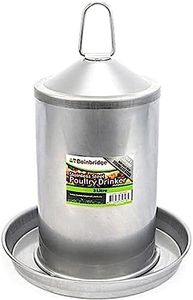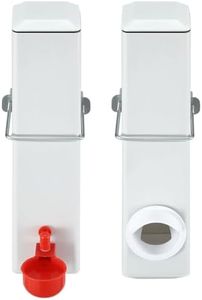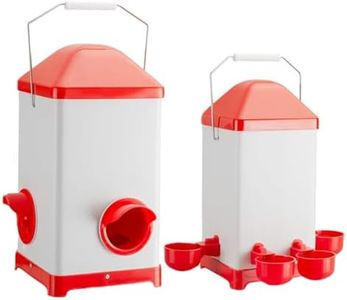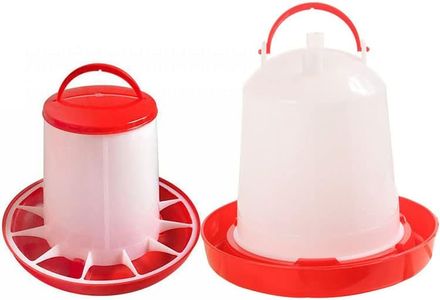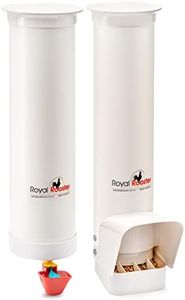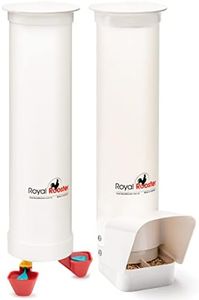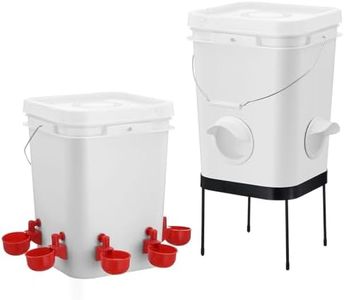We Use CookiesWe use cookies to enhance the security, performance,
functionality and for analytical and promotional activities. By continuing to browse this site you
are agreeing to our privacy policy
10 Best Poultry Waterers
From leading brands and best sellers available on the web.By clicking on a link to a third party's website, log data is shared with that third party.
Buying Guide for the Best Poultry Waterers
Picking the right poultry waterer is essential for keeping your birds healthy and happy. A good waterer should provide your flock with fresh, clean water throughout the day, prevent contamination, and be easy for you to maintain. When choosing, think about the size of your flock, the space available, and how much time you want to spend on daily care. Focusing on the key features will help you find a waterer that fits your needs and keeps your poultry well-hydrated.CapacityCapacity refers to the amount of water the waterer can hold. This is important because it determines how often you will need to refill it and how well it serves your flock. Small capacity waterers (1-2 gallons) are suitable for just a few birds or for chicks, while medium (3-5 gallons) are good for mid-sized backyard flocks. Large capacity units (over 5 gallons) are better for bigger flocks or people who want to refill less often. Choose capacity based on the number of birds you have and how frequently you want to refill.
MaterialThe most common materials are plastic and metal. Plastic waterers are lightweight, generally less expensive, and don't rust, but may become brittle in sun or extreme cold. Metal waterers are more durable and resistant to animal damage but can rust if not cared for and might heat up or cool down quickly. Choose plastic for ease of use and portability if you have a small flock or live in mild climates; metal is preferable for long-term durability or outdoor use in more rugged setups.
Type (Gravity-fed vs. Automatic)Gravity-fed waterers use gravity to let water flow into a basin as it's consumed, while automatic waterers connect to a hose or larger reservoir to refill as needed. Gravity-fed types are simple and good for small to medium flocks, but need manual refilling and cleaning. Automatic types are better for larger flocks or if you want to minimize labor, but require a stable water supply and more setup. Pick gravity for simplicity or small scale, automatic for ease and larger flocks.
Ease of CleaningA waterer should be easy to take apart and clean thoroughly, as dirty water can harm your flock. Basic waterers may just twist open; others have parts you can fully detach for scrubbing. Complex designs or narrow openings can make cleaning tricky. If you value low maintenance time, look for wide openings and minimal parts, especially if you have many birds or limited time for chores.
Contamination PreventionFeatures like narrow bases, protected basins, or nipples instead of open dishes help prevent dirt, litter, and droppings from getting into the water. Open pans are more easily contaminated, so they work best for adult birds in clean coops, while closed or nipple systems are best if your birds tend to spill or soil water. Match the design to your environment and flock’s habits for freshest water.
Temperature ResistanceIf you live in a hot or cold climate, consider waterers that can handle temperature extremes. In cold areas, insulated or heated waterers prevent freezing, while UV-resistant plastic or shaded placement avoids overheating and algae growth in warm areas. Choose features that suit your local weather to keep water accessible year-round.
